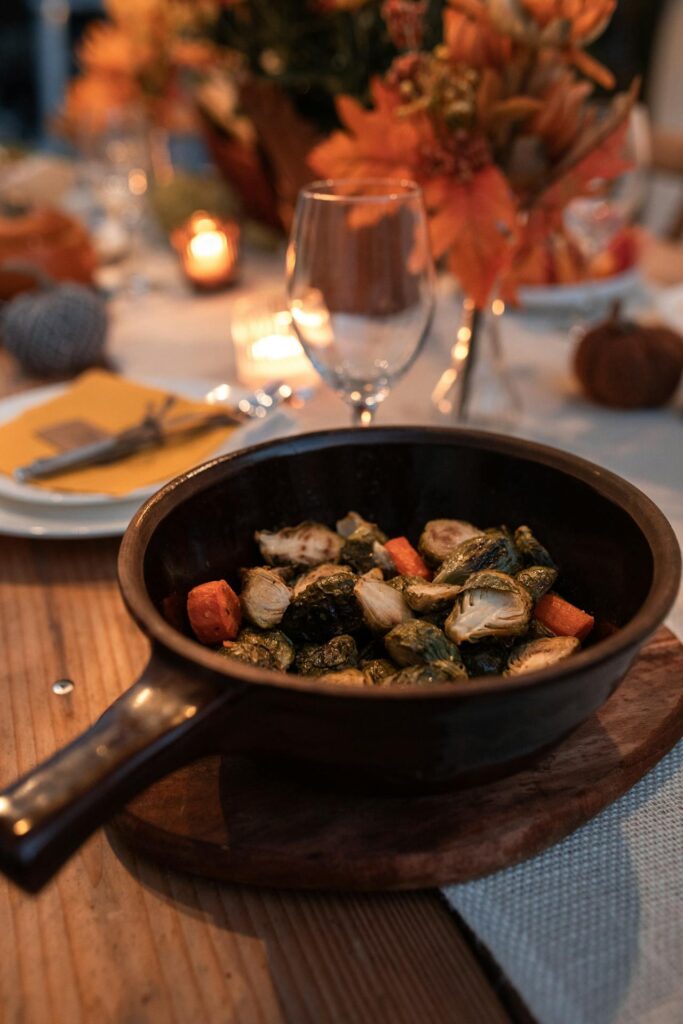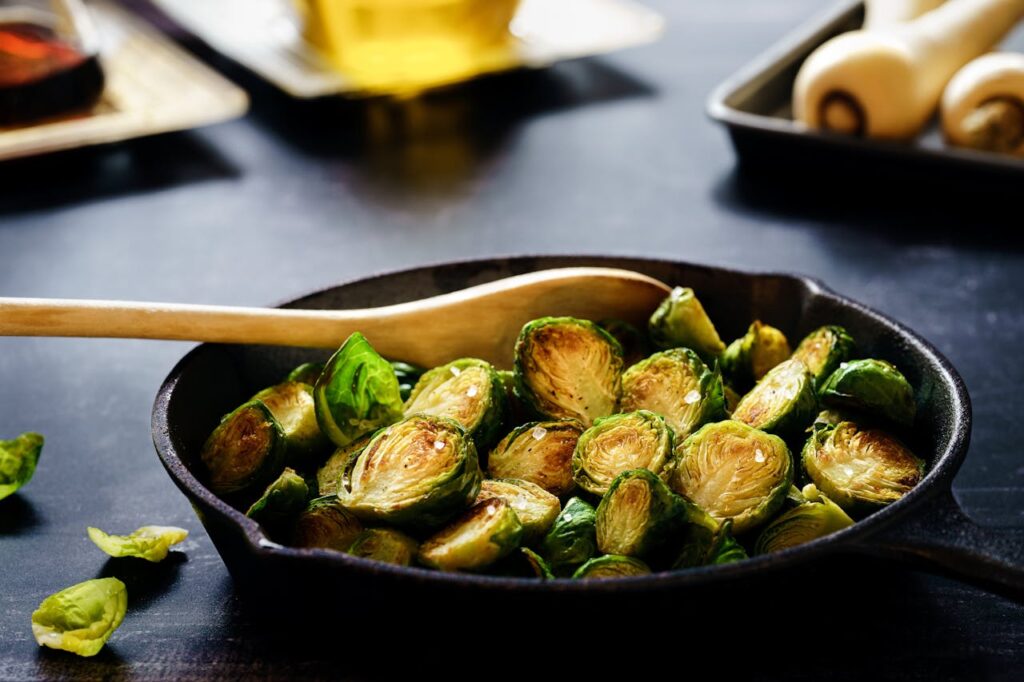I remember Brussels sprouts from my childhood as one of the many alternative foods my mother chose for our diet. I say “alternative” because most of my friends found our food choices to be strange and not their norm. Now that I’m an adult and making some of the same health choices, I appreciate my mother’s intentional health decisions.
Let’s open the door to the many benefits of this superfood that may brighten your life and health.
Brussels sprouts, those tiny green orbs, have a rich history and an even richer list of health, sustainability and even cancer prevention benefits. Native to the Mediterranean, they were cultivated near Brussels, Belgium, as early as the 13th century, giving them their name. Though initially a local favorite, they gained widespread fame in the 16th century and have since become a global staple. Many don’t realize how diverse Brussels sprouts can be. Over 110 varieties range in size, color, and flavor, including unique purple types that add a burst of vibrancy to any meal. Despite their reputation as a divisive food, their culinary versatility and incredible health benefits make them an underrated superfood.
Perhaps their most remarkable attribute lies in their cancer prevention and healing role. Brussels sprouts are rich in glucosinolates, compounds that break down into powerful substances like sulforaphane and indole-3-carbinol when chewed or cooked. These substances have been extensively studied for their anti-cancer properties.
A pivotal 2004 study published in the Cancer Epidemiology, Biomarkers & Prevention Journal revealed that eating Brussels sprouts significantly reduces oxidative stress and DNA damage, two key contributors to cancer development. Furthermore, research from Oregon State University found that sulforaphane targets cancer stem cells—those responsible for tumor growth and recurrence—making Brussels sprouts an invaluable addition to cancer-fighting diets. Dr. Jed Fahey of Johns Hopkins University describes sulforaphane as “a compound with extraordinary potential to protect cells and fight cancer.” His work showed its ability to inhibit the growth of prostate, breast, and colon cancers while supporting healthy cells. Similarly, a 2016 study in Oncotarget highlighted sulforaphane’s ability to block enzymes linked to tumor progression, further cementing its reputation as a natural cancer-fighting agent.

For cancer survivors like Ellen Sharp, Brussels sprouts have become a key part of recovery. “After my diagnosis, I adopted a diet focused on cruciferous vegetables like Brussels sprouts. Alongside treatment, they made me feel healthier and more in control of my body,” she shared. We are not suggesting that food should replace medical care. However, vegetables like Brussels sprouts empower patients by supporting their overall health.
In addition to their anti-cancer benefits, Brussels sprouts are nutritional powerhouses with a wide range of common health benefits. They are packed with vitamin C, which boosts the immune system and promotes skin health by increasing collagen production. Their high levels of vitamin K support strong bones and aid in blood clotting, while antioxidants like kaempferol help protect the body against free radicals, reducing the risk of chronic diseases. Brussels sprouts are also an excellent source of folate, which is crucial for pregnant individuals to support fetal development and their fiber content promotes healthy digestion by feeding beneficial gut bacteria.
These benefits, affordability and ease of cultivation make Brussels sprouts a powerful tool for addressing food insecurity. Food insecurity is a lack of reliable access to sufficient, affordable, and nutritious food. It’s a problem that affects millions worldwide, especially in urban and rural areas where fresh produce is scarce. Brussels sprouts, with their high nutritional value and ability to grow in diverse environments, are a practical solution for families facing this challenge.
Growing Brussels sprouts at home is surprisingly simple. They thrive in cool weather and can be planted in gardens or deep containers. Use rich, well-drained soil and ensure they get at least six hours of sunlight daily. Regular watering and occasional fertilizing will encourage healthy growth. As sprouts form along the stalk, harvest the lower ones first to allow the upper ones to continue maturing. Home-grown Brussels sprouts are fresher and more flavorful and a sustainable way to enjoy their benefits.
Globally, Brussels sprouts remain most popular in Europe, particularly in Belgium, the Netherlands, and the United Kingdom, where they’re a winter staple. However, their appeal is growing worldwide, with North America and parts of Asia embracing their versatility in salads, stir-fries, and roasted dishes. While Brussels sprouts are a nutritional goldmine, they have a few considerations. Their high fiber content can cause digestive discomfort if overconsumed. Additionally, their rich vitamin K levels, which support blood clotting, may require monitoring for individuals on blood-thinning medications. Cooking them properly—roasting or sautéing to enhance their natural sweetness—can also help win over skeptics who find their bitterness off-putting.

Beyond their health and culinary value, Brussels sprouts carry an environmental advantage. They’re a low-impact crop requiring minimal water and pesticides, making them an eco-friendly choice for farmers and consumers alike. In an era where climate-conscious eating is essential, these tiny vegetables deliver significant results for the planet.
Brussels sprouts have come a long. Today, they’re more than a side dish—they symbolize resilience, health, and accessibility. From reducing cancer risk to combating food insecurity, their impact is far-reaching. In a World where healthy eating does not seem to be the norm, perhaps choosing what’s strange to most may be the right choice for healthier living.











